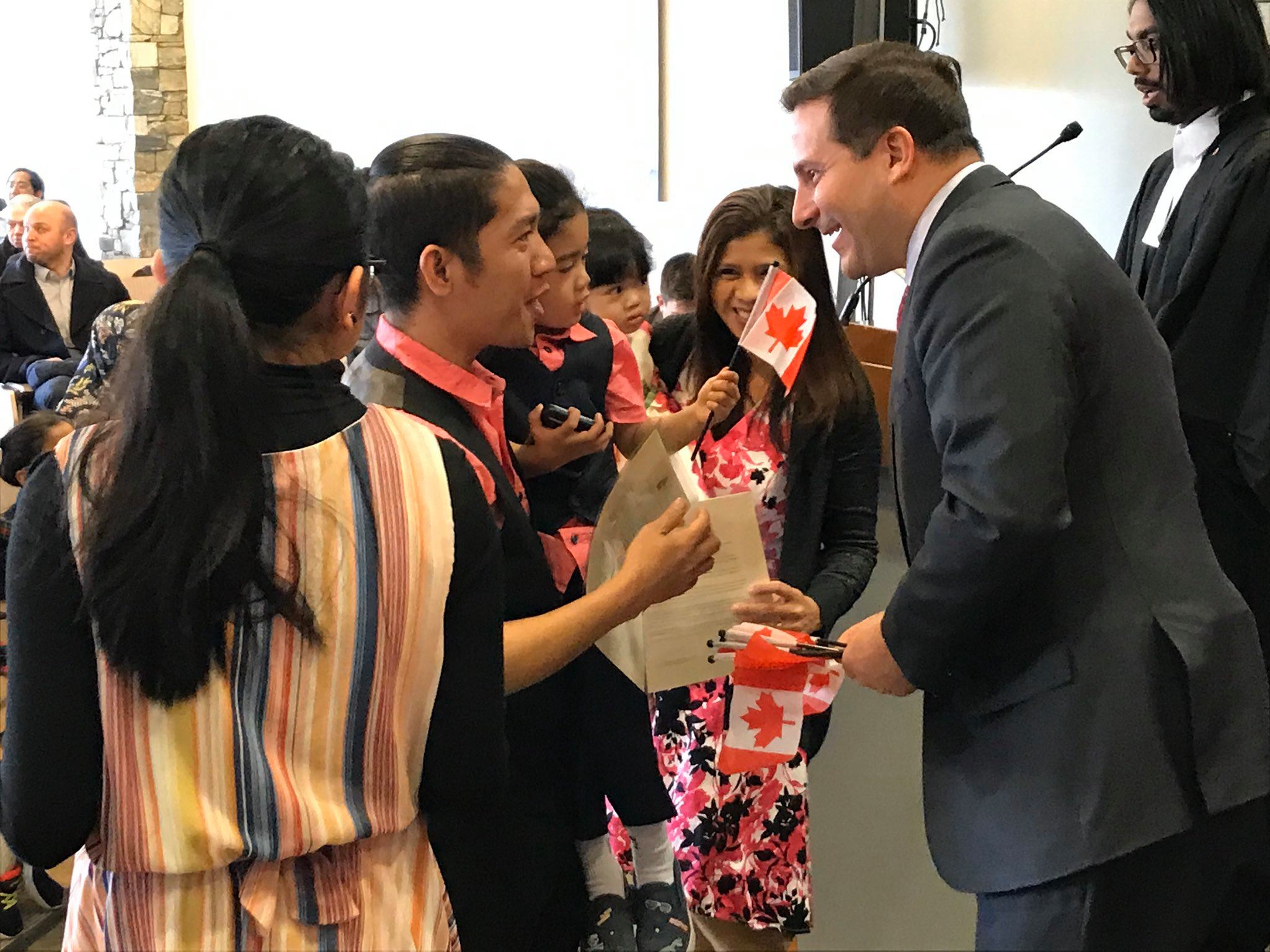Do you have an idea on how to help new immigrants settle and integrate in Canada during the post-COVID-19 era? If you do, Immigration Canada wants to hear about it.
Immigration, Refugees and Citizenship Canada (IRCC) announced today that it will allocate approximately $30 million toward settlement services for newcomers to safely and sustainably recover from the COVID-19 pandemic.
“The Government of Canada is committed to ensuring that the strengths newcomers bring to this country can be fully realized, and that there are services to support their integration journeys in these challenging times,” said Marco Mendicino, Minister of Immigration, Refugees and Citizenship.
The money will be channeled through the ministry’s Service Delivery Funding (SDI) program.
“The service providers funded through IRCC help newcomers make the most of their talents and experience in order to fully integrate and contribute to the Canadian economy and to their communities,” said Mendicino.
Since 2017, SDI projects have centered on developing innovative approaches to better support the settlement and integration of newcomers, IRCC said in a statement.
“Throughout the pandemic, many settlement services have moved online. SDI funding will help IRCC determine the kinds of services newcomers need, while taking into account the increased reliance on online service delivery. Funding will continue to support newcomers’ successful integration in the COVID-19 recovery period.”
As part of this funding process, projects will address the following priorities:
- Leveraging technology: IRCC is looking for projects that will identify technologies that can deliver remote settlement services. Projects will also identify barriers that newcomers face in accessing and using these technologies, and how these barriers can be addressed.
- Increasing employer involvement: The pandemic is having a major impact on the short- and long-term employment prospects of newcomers. Projects under this priority will test approaches that encourage employers to get more involved in the integration of newcomers.
- Building the capacity of the sector: Under this category, organizations with expertise in social research and development will partner with IRCC-funded agencies to help them develop the skills and tools needed to research, design and evaluate services for newcomers. This will help address some of the challenges faced by newcomers, including racism and marginalization.
Detailed funding guidelines will be posted on the IRCC website on October 15, 2020. Successful projects will be announced in the summer of 2021. Funding will begin in the fall of 2021 and run until March 31, 2024.
The SDI projects highlighted below, underway since 2018, are examples of how IRCC’s investments in innovation can help communities, service providers and newcomers as they adapt to the pandemic environment.
Health Literacy Partnerships: Calgary Immigrant Women’s Association (Calgary, Alberta)
Newcomer women, including refugees, play a key role in the management of the health of their families, so it’s important that they understand how the health-care system works in Canada. This project brings together health-care professionals, newcomers and language instructors to develop a series of multilingual tools and resources. Knowledge about the health-care system is vital during a public health crisis, to keep newcomers and all Canadians healthy. Many newcomers are not aware of available services or how to access them, and often face difficulties communicating their concerns to health-care professionals.
Digital Literacy Training for Language Instruction for Newcomers to Canada Clients: Immigrant Services Society of British Columbia (Vancouver, British Columbia)
This project provided a course to participants who needed both language training and help learning how to use digital technology. Without digital skills, newcomers face barriers to accessing information on government, health and education services, and difficulties in using online settlement tools and resources. The use of digital tools and technology has also been critical during the pandemic because many services normally delivered in-person suddenly moved online.
We Value Partnership: YMCA of Southwestern Ontario (Windsor, Ontario)
The YMCA of Southwestern Ontario designed a customizable settlement and integration management system that allows service providers to streamline the initial assessment and referral of newcomers. Newcomer assets and needs are analyzed in real time so that the broader community can leverage a newcomer’s skills and experience—and support their integration—with services and opportunities like mental health supports, friendship clubs, soccer coaching, requests for volunteers, and language training. The ability to quickly identify and respond to changing circumstances and gaps in services is especially helpful in evolving situations like COVID-19.
A multiple-award winning journalist, Fabian Dawson is an internationally acclaimed author, filmmaker and media expert. His work over the last four decades spans the globe and he also serves as a consultant/strategic advisor to a variety of international companies. As deputy editor-in-chief of The Province, part of the Postmedia chain, Dawson led initiatives within a special publications group to provide directed content for a variety of organisations. He was named the 2019 recipient of the Bruce Hutchison Lifetime Achievement Award at Jack Webster Awards. Dawson has been invited by the governments of India, Malaysia, Taiwan, China, Hong Kong and the United States to act as a media observer/advisor on a variety of Asian-Canada issues. Dawson, now operates FD Media, which specializes in harnessing editorial assets to revenue generating opportunities.





